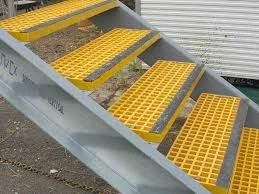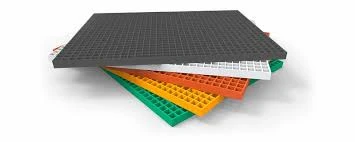
-
 Afrikaans
Afrikaans -
 Albanian
Albanian -
 Amharic
Amharic -
 Arabic
Arabic -
 Armenian
Armenian -
 Azerbaijani
Azerbaijani -
 Basque
Basque -
 Belarusian
Belarusian -
 Bengali
Bengali -
 Bosnian
Bosnian -
 Bulgarian
Bulgarian -
 Catalan
Catalan -
 Cebuano
Cebuano -
 China
China -
 China (Taiwan)
China (Taiwan) -
 Corsican
Corsican -
 Croatian
Croatian -
 Czech
Czech -
 Danish
Danish -
 Dutch
Dutch -
 English
English -
 Esperanto
Esperanto -
 Estonian
Estonian -
 Finnish
Finnish -
 French
French -
 Frisian
Frisian -
 Galician
Galician -
 Georgian
Georgian -
 German
German -
 Greek
Greek -
 Gujarati
Gujarati -
 Haitian Creole
Haitian Creole -
 hausa
hausa -
 hawaiian
hawaiian -
 Hebrew
Hebrew -
 Hindi
Hindi -
 Miao
Miao -
 Hungarian
Hungarian -
 Icelandic
Icelandic -
 igbo
igbo -
 Indonesian
Indonesian -
 irish
irish -
 Italian
Italian -
 Japanese
Japanese -
 Javanese
Javanese -
 Kannada
Kannada -
 kazakh
kazakh -
 Khmer
Khmer -
 Rwandese
Rwandese -
 Korean
Korean -
 Kurdish
Kurdish -
 Kyrgyz
Kyrgyz -
 Lao
Lao -
 Latin
Latin -
 Latvian
Latvian -
 Lithuanian
Lithuanian -
 Luxembourgish
Luxembourgish -
 Macedonian
Macedonian -
 Malgashi
Malgashi -
 Malay
Malay -
 Malayalam
Malayalam -
 Maltese
Maltese -
 Maori
Maori -
 Marathi
Marathi -
 Mongolian
Mongolian -
 Myanmar
Myanmar -
 Nepali
Nepali -
 Norwegian
Norwegian -
 Norwegian
Norwegian -
 Occitan
Occitan -
 Pashto
Pashto -
 Persian
Persian -
 Polish
Polish -
 Portuguese
Portuguese -
 Punjabi
Punjabi -
 Romanian
Romanian -
 Russian
Russian -
 Samoan
Samoan -
 Scottish Gaelic
Scottish Gaelic -
 Serbian
Serbian -
 Sesotho
Sesotho -
 Shona
Shona -
 Sindhi
Sindhi -
 Sinhala
Sinhala -
 Slovak
Slovak -
 Slovenian
Slovenian -
 Somali
Somali -
 Spanish
Spanish -
 Sundanese
Sundanese -
 Swahili
Swahili -
 Swedish
Swedish -
 Tagalog
Tagalog -
 Tajik
Tajik -
 Tamil
Tamil -
 Tatar
Tatar -
 Telugu
Telugu -
 Thai
Thai -
 Turkish
Turkish -
 Turkmen
Turkmen -
 Ukrainian
Ukrainian -
 Urdu
Urdu -
 Uighur
Uighur -
 Uzbek
Uzbek -
 Vietnamese
Vietnamese -
 Welsh
Welsh -
 Bantu
Bantu -
 Yiddish
Yiddish -
 Yoruba
Yoruba -
 Zulu
Zulu
Feb . 14, 2025 04:17
Back to list
frp pipes and fittings for ship building
In the realm of shipbuilding, selecting the appropriate materials is crucial to ensure durability, safety, and efficiency. One of the standout materials gaining traction in the maritime industry is Fiber Reinforced Plastic (FRP) used in pipes and fittings. FRP's unique properties make it an ideal choice for modern shipbuilding applications, satisfying the stringent demands for resilience and longevity required by this challenging environment.
In reinforcing the authority of FRP pipes and fittings in shipbuilding, numerous classification societies and regulatory bodies recognize FRP materials, providing certifications for use in ship construction. These endorsements ensure that shipbuilders can trust in the material's performance and compliance with international maritime standards. Furthermore, manufacturers engaged in the production of FRP components for ships are often ISO certified, exemplifying their commitment to quality and reliability. Trust in FRP as a material continues to grow as shipbuilders share successful integration stories, thus creating a repository of positive user experiences and testimonials. These real-world applications highlight FRP’s capability to withstand maritime challenges, encapsulating its reliability over prolonged periods in active service. Moreover, ongoing advancements in composite material technology continually enhance the performance characteristics of FRP pipes and fittings. Such innovations reflect the industry's dynamic nature and the continuous pursuit of excellence in shipbuilding. By focusing on improving the material’s properties, manufacturers are bolstering the trust that builders and operators place in these products. In summary, FRP pipes and fittings are fast becoming a cornerstone material in the shipbuilding industry. Through consistent delivery of superior performance, cost efficiency, and environmental benefits, FRP not only meets but often exceeds the demanding expectations of the maritime sector. Its adoption is a testament to the material’s unmatched blend of experience, expertise, authority, and trustworthiness that it brings to modern ship construction endeavors.


In reinforcing the authority of FRP pipes and fittings in shipbuilding, numerous classification societies and regulatory bodies recognize FRP materials, providing certifications for use in ship construction. These endorsements ensure that shipbuilders can trust in the material's performance and compliance with international maritime standards. Furthermore, manufacturers engaged in the production of FRP components for ships are often ISO certified, exemplifying their commitment to quality and reliability. Trust in FRP as a material continues to grow as shipbuilders share successful integration stories, thus creating a repository of positive user experiences and testimonials. These real-world applications highlight FRP’s capability to withstand maritime challenges, encapsulating its reliability over prolonged periods in active service. Moreover, ongoing advancements in composite material technology continually enhance the performance characteristics of FRP pipes and fittings. Such innovations reflect the industry's dynamic nature and the continuous pursuit of excellence in shipbuilding. By focusing on improving the material’s properties, manufacturers are bolstering the trust that builders and operators place in these products. In summary, FRP pipes and fittings are fast becoming a cornerstone material in the shipbuilding industry. Through consistent delivery of superior performance, cost efficiency, and environmental benefits, FRP not only meets but often exceeds the demanding expectations of the maritime sector. Its adoption is a testament to the material’s unmatched blend of experience, expertise, authority, and trustworthiness that it brings to modern ship construction endeavors.
Related Products









